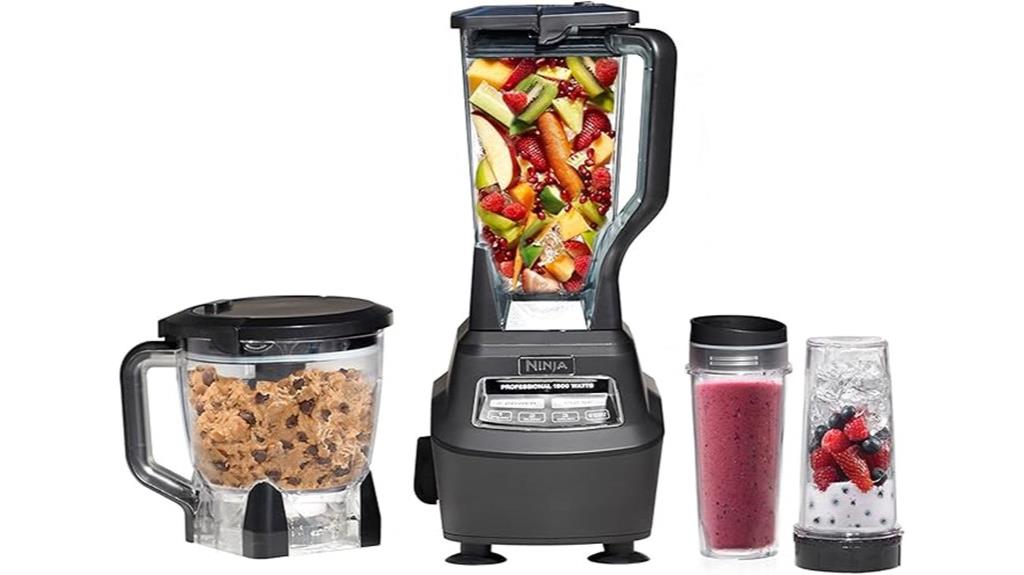You've never tasted soul food like this before. Bring the Flavor: Vegan Soul Food Classics You'll Love takes you on a culinary journey that'll revolutionize your perception of plant-based cooking. As you explore the rich history of African American cuisine through a vegan lens, you'll discover how traditional dishes can be reimagined without sacrificing taste or comfort. From collard greens to black-eyed peas, these recipes prove that vegan soul food can be just as satisfying as its non-vegan counterparts. But there's more to this cookbook than just mouthwatering meals – it's a demonstration of the power of culinary innovation and cultural preservation.
Key Takeaways
- Vegan collard greens offer a flavorful, plant-based twist on a soul food staple.
- Black-eyed peas can be prepared with smoked paprika and liquid smoke for authentic taste.
- Sweet potato dishes shine in vegan soul food, offering natural sweetness and versatility.
- Creative substitutions like jackfruit or mushrooms can replicate traditional meat-based dishes.
- Spices and seasonings are crucial in vegan soul food to maintain bold, traditional flavors.
History
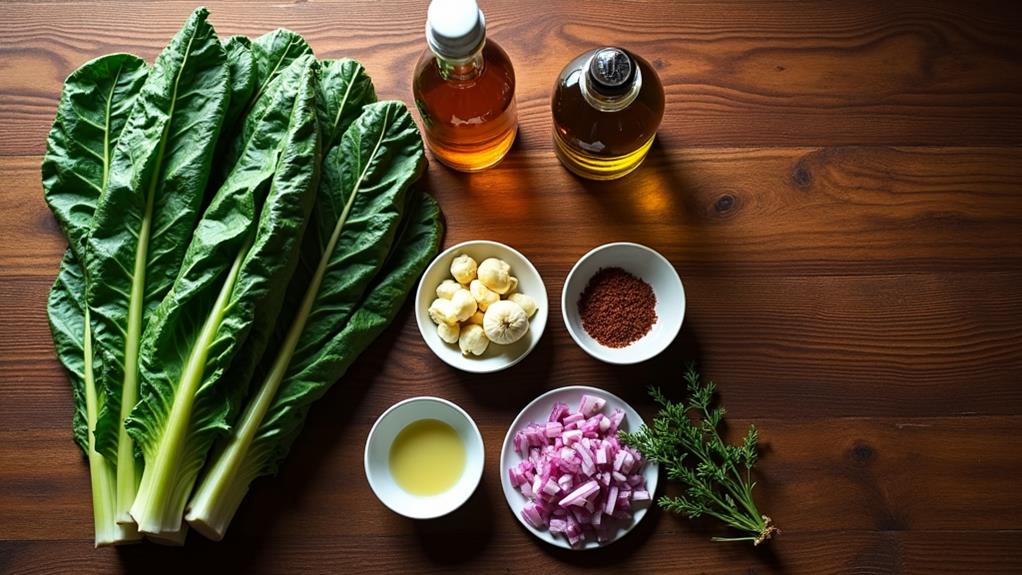
Vegan soul food might seem like a modern concept, but its roots run deep in African American culinary history. The traditional soul food diet, born from the culinary traditions of enslaved Africans, was primarily plant-based due to necessity and limited access to meat. Many staples of soul food, like collard greens, black-eyed peas, and sweet potatoes, were naturally vegan.
In the early 20th century, as African Americans gained more economic freedom, meat consumption increased. However, the 1960s and 70s saw a resurgence of plant-based eating within the Black community. Influential figures like Dick Gregory and Alvenia Fulton promoted veganism for health and ethical reasons, inspiring others to embrace a meat-free lifestyle.
Today's vegan soul food movement combines these historical roots with modern nutritional knowledge and culinary techniques. Chefs and home cooks are reimagining classic dishes, using ingredients like jackfruit, mushrooms, and plant-based proteins to recreate familiar flavors and textures.
This evolution of soul food honors its origins while adapting to contemporary dietary preferences, proving that you can enjoy the comfort and nostalgia of soul food without compromising your vegan values.
Recipe
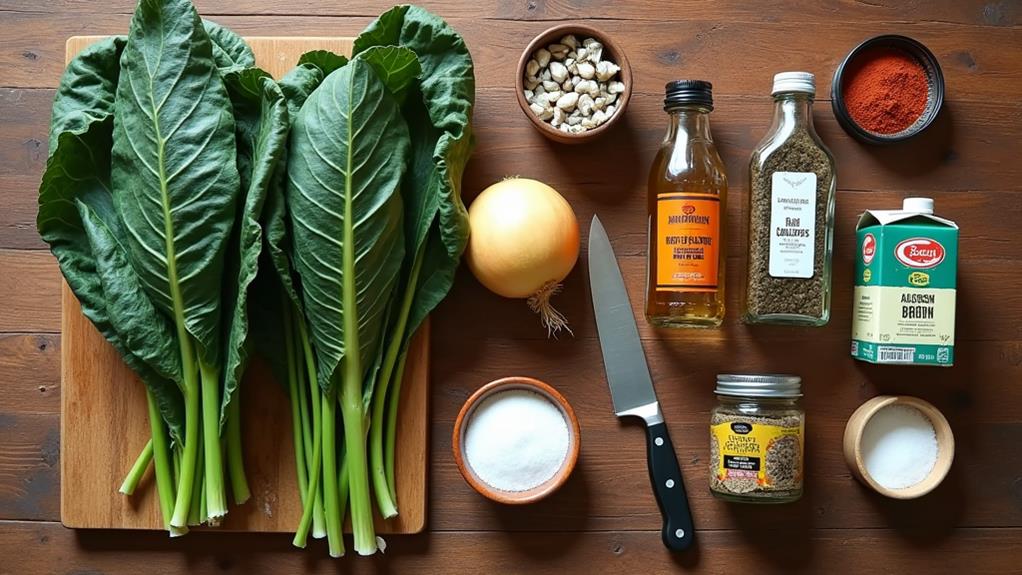
Vegan soul food classics bring the comforting flavors and textures of traditional Southern cuisine to plant-based eaters. This recipe for vegan collard greens captures the essence of this beloved side dish while staying true to vegan principles. By replacing the traditional ham hock with smoky spices and umami-rich ingredients, we create a dish that's just as satisfying as its meat-based counterpart.
These vegan collard greens are slow-cooked to tender perfection, infused with a rich broth that's both savory and slightly tangy. The addition of smoked paprika and liquid smoke imparts a deep, smoky flavor that mimics the traditional pork-based version. Paired with cornbread or served alongside other soul food favorites, these greens are sure to become a staple in your vegan recipe repertoire.
- 2 large bunches of collard greens, stems removed and leaves chopped
- 1 large onion, diced
- 4 cloves garlic, minced
- 2 tablespoons olive oil
- 4 cups vegetable broth
- 2 tablespoons apple cider vinegar
- 1 tablespoon smoked paprika
- 1 teaspoon liquid smoke
- 1 teaspoon red pepper flakes
- 1 tablespoon sugar
- Salt and black pepper to taste
Heat olive oil in a large pot over medium heat. Add onions and garlic, sautéing until softened. Add chopped collard greens in batches, stirring to wilt.
Pour in vegetable broth, apple cider vinegar, smoked paprika, liquid smoke, red pepper flakes, and sugar. Bring to a boil, then reduce heat and simmer for 1-1.5 hours, or until greens are tender. Season with salt and pepper to taste.
For best results, allow the greens to sit for at least 30 minutes after cooking to let the flavors meld. If you prefer a spicier dish, increase the amount of red pepper flakes or add a diced jalapeño pepper during the initial sauté.
To enhance the smoky flavor, consider adding a tablespoon of vegan Worcestershire sauce. Remember that collard greens tend to cook down considerably, so don't be alarmed if the pot seems overly full at first.
Final Thoughts
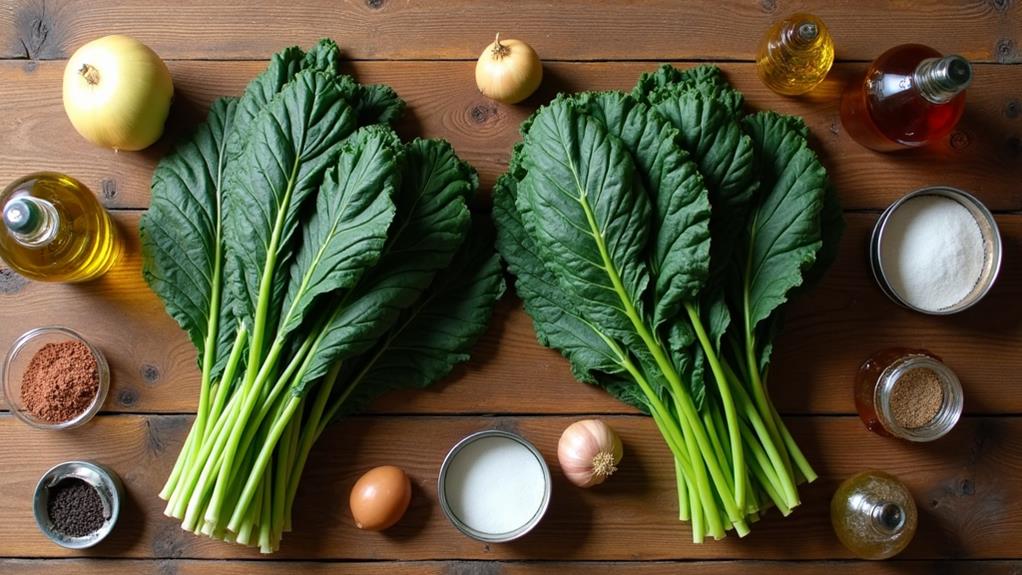
As we wrap up our exploration of vegan soul food classics, it's clear that plant-based cooking doesn't mean sacrificing flavor or tradition.
These recipes prove that you can enjoy the comfort and nostalgia of soul food while embracing a vegan lifestyle. By using creative substitutions and innovative techniques, you've learned how to recreate beloved dishes without animal products.
Remember, the key to successful vegan soul food is experimentation and patience. Don't be afraid to adjust recipes to suit your taste preferences or dietary needs.
As you become more comfortable with plant-based ingredients, you'll find it easier to veganize other traditional soul food dishes.
Embracing vegan soul food isn't just about personal health; it's also a way to honor the resourcefulness and creativity of African American culinary traditions.
By adapting these recipes, you're participating in the evolution of soul food and helping to maintain its relevance for future generations.
Whether you're a committed vegan or simply looking to incorporate more plant-based meals into your diet, these vegan soul food classics offer a delicious and satisfying way to nourish your body and soul.
Join The Discussion
What are your favorite tips and tricks for perfecting vegan soul food? Share your go-to recipes, spice blends, and cooking tools that make plant-based Southern classics shine.
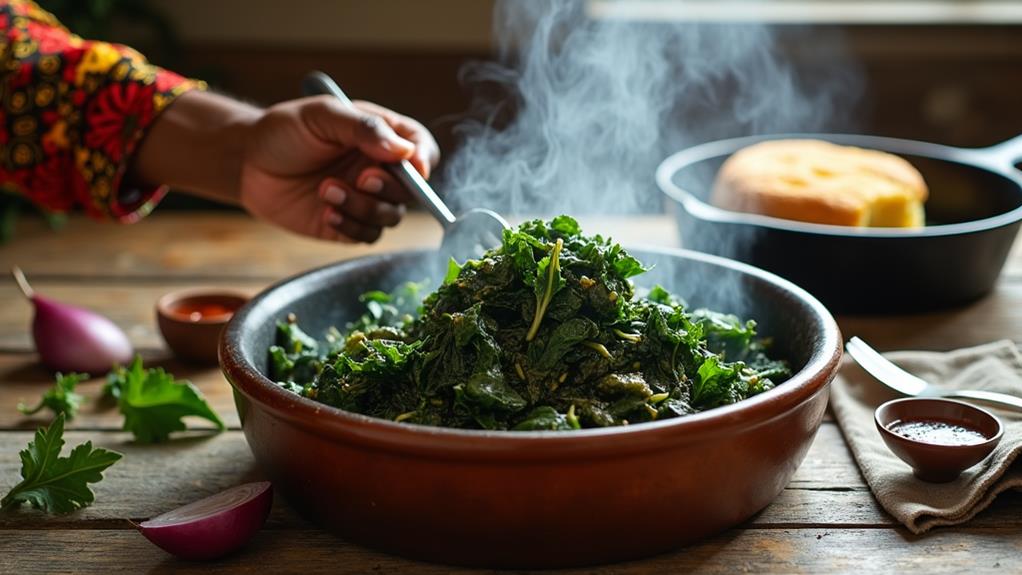
Transform your kitchen into a haven for vegan soul food with these essentials, designed to bring authentic flavors and rich textures to every dish.






